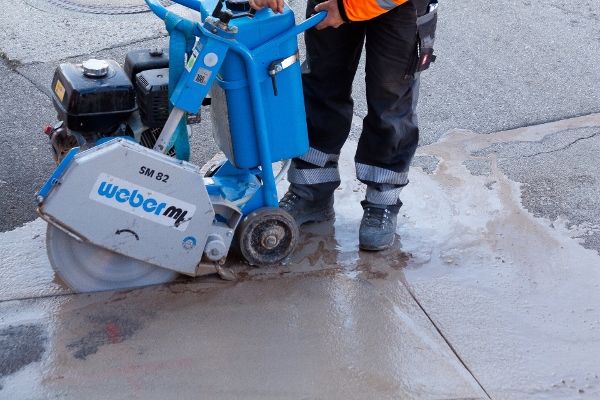A Guide To Insurance For Contractors

The unexpected will happen. As a contractor, you know this. Pipes leak, nails go where they shouldn’t and accidents happen. However, when the unexpected happens to you, it’s best to be prepared. That’s where contractor’s insurance comes in.
By finding the right plan for you and your business, you can prepare for all the situations that can’t be anticipated. With so many choices available, navigating the world of insurance for your business can be a tricky one. We’re here to help. Here are a few tips on what to look for when seeking an insurance plan for your contractor business.

Why Insurance?
Where you spend your money matters when it comes to running your business, so you may be wondering why even budgeting for insurance is important. As a pro, you have plenty of risks, not only with the work you’re doing, but plenty of backend responsibilities as well. What happens if you lose important records or if a customer doesn’t think the work you did was fair and decides to take action? What if you hurt yourself on the job?
Additionally, many state laws require contractors to carry some form of insurance. It’s important to research your local and state regulations to find out what is necessary for you. You’ll also want to understand what insurance is needed for your specific trade, as certain ones have varying requirements.
Having insurance is extremely important. You can protect yourself and your business with insurance. Customers will also be more confident in hiring you for the job if they request to see your insurance, and you’re able to provide it.
There are plenty of minimal plans available to cover the basics or plans that are trade specific, so you can find just what you need for your budget. It’s important to find the right insurance coverage for the work you may be doing. For example, if your insurance only covers carpentry work, it may not cover any electrical work you do.
Contractors General Liability Insurance
For every pro, this should be the first option you look into. By choosing a General liability insurance, you’re covered from many claims such as injury and property damage. If a customer or worker decides to sue for any of these reasons, and you don’t have this type of insurance, this can mean the end of your business. In certain cases, without insurance, this can impact your personal assets as well. This insurance covers a variety of trades and depending on your insurance company, can cover various contractor needs. Keep your business safe with general liability insurance.

Builder’s Risk Insurance
As a type of property insurance, builder’s risk protects damage or loss to your work materials, tools and property damages. It doesn’t cover injuries on the job site however. This insurance is specific to property. Builder’s risk insurance is a short-term insurance that is meant for the duration of the project. Some local building codes require pros have this type of insurance, so research before you start your next construction job.
Business Owner’s Policy
If you’re the owner of your contracting company, and need coverage for yourself and employees, a business owner’s policy might be a good choice for you. This type of coverage can not only provide general liability coverage, but also protect your tools and equipment. This is also a great idea if your small business is expanding and you’re looking to create a safe environment for a few employees.
A business owner’s policy may include different coverage depending on what company you’re looking at. It’s best to write out the specific needs you have for your trade and your company to compare policies and find the best one.
Construction Insurance for Contractor Vehicles
From a pickup truck to snow plow, you’ve invested a lot of money in the vehicles you own that make the job work. Why risk spending more money if an accident happens? Many insurance companies offer special insurance policies for specific vehicles and can be bundled into the insurance package you choose.

Completed Operations Insurance
Though you may put your best into every job, things sometimes go wrong. When your work ends, that doesn’t remove you from liability if there is an accident or malfunction in the work you did. The homeowner could hold you accountable if your work caused any injuries or other damage. Completed operations insurance provides peace of mind for both you and the customer, that if there was an accident, you’re covered.
Trade-Specific Insurance
Many insurance companies offer insurance policies that are trade-specific and cover liabilities within your work. Here are just a few of the trades that are covered by many popular insurance companies:
- Cleaning
- Carpentry
- Electrical
- Landscaping
- Plumbing
- Painting
- Roofing
- Snow Plow
Having trade-specific insurance can protect you from the unique risks that threaten your business. Consider adding this coverage to your general liability insurance for added security.
Conclusion
Contractor’s insurance is extremely beneficial and plenty of research should be done around the type that is right for you and your company. Remember, look into your local codes to see what insurance you must have and write down your needs to examine what you’d like to have covered. Don’t forget about your subcontractors, as they may not always be covered under your plan. Make sure any subcontractors are covered before beginning work.
Pros who are insured have more peace of mind at the end of the day and can protect their work. Customers also appreciate this, as they do understand that many pros face risk with the project they’re hired to do.



